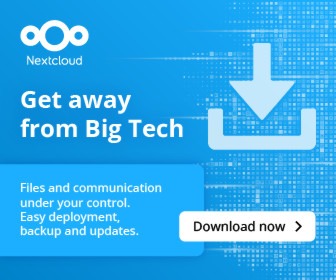The Heart of Linux
Reflections of a once upon a time everyday Windows user.
It’s hard to remember the span of time when I sat in front of my Windows computer on a daily basis. I sat comfortable in the understanding that using my computer came with some non-negotiable requirements, like the constant vigilance against malware threats and my system bogging down from the antivirus software helping me belay those threats. Who doesn’t remember the ever-popular monthly defragging, and for me at least, a complete wipe and reinstallation of Windows every six to eight months.
 These things I accepted as a necessary part of using a computer every day.
These things I accepted as a necessary part of using a computer every day.
A few Windows folks will surely chime in, saying that they have used Windows since Captain Kangaroo was a corporal. They’ll say that they never had to reinstall their system due to it becoming unstable, sometimes rebooting for no reason at all and then booting into a black screen. A black screen that would eventually correct itself if you got up to fix a sandwich and take the dog out. A black screen that gave you no frickin’ idea of what it was, why it happened or how to fix it.
If that didn’t happen to you, then you must certainly be living a charmed life. At least the infamous blue screen gave you gibberish, numbers and symbols created by the ancients, a stargate destination to start untangling the ball of fishing line that was your Windows computer.
I won’t take time to challenge those folks who certainly will chime in to claim this was not a problem for them. I can understand how they might have dodged these nasty events. Checking their email twice a day and doing their taxes annually. Maybe doing some work at home via their office software. Reading the online front page of their daily newspaper. Other than that, those computers sat unused for the most part.
Now you guys and girls like me downloaded and installed every piece of shareware, crapware and nyuk nyuk bop-ware that caught your eye or fired your imagination. “Napster? We dun need no stinkin’ Napster. We have newsgroups.” Subsequently, we uninstalled and purged said software after it failed us or we become bored with it. We all know the truth about this behavior; it can turn your registry into a glob of slow-boiling cruft and goo. I believe it became almost ritualistic for many of us, a sort of self-inflicted digital carnage to be created again to repeat the cycle.
Most of us know that uninstalling a Windows application doesn’t necessarily mean all traces of it are gone. If you disagree, try using the standard Windows uninstall program to get McAfee antivirus from your machine. Heck, McAfee knows that Windows uninstaller on their software can hose your machine and provide their own uninstaller. Even that has about a 40% chance of screwing your system up.
As well, Windows computers have buried in the program files and deeper a large number of .dll files. The odd thing is, many of them have the same name, although each one is used by a different application. The new user, feeling assured that they have a firm grasp on the way their computer works, goes about the task of deleting these “duplicates.”
Oh, look everybody…a Black Screen. How nice. I guess that means it’s time to reinstall…
So it went then, and I am sure, so it goes now. We do one of two things as mainstream computer users: We search for an answer to fix our own screw ups or we seek outside technical support. With the later, we each do our little parts to put our technical supports’ kids through college.
I said “mainstream.” As much as I would like to further the illusion, Linux isn’t mainstream, even in the broadest sense of the term. We’re getting there though. One out of six people who are told by me that their computer will be running Linux have at least an idea of what Linux is. One out of 30 have used it, or do use it outside of the home, whether at school or work. Maybe three out of 100 clap with glee, fully jacked up that they won’t have to blow away a Windows install and replace it with Linux, but the chances are good they will blow away our custom distro and replace it with their preferred distro.
And just one of those silly little meaningless statistics: Not one of those three out of 100 were over the age of 24, for what it’s worth.
An argument has taken the form of a verbal running gun battle at our shop, depending on who’s working that day. Does training a student in the use of Linux deprive them of valuable, life-long learning opportunities? I mean, it’s hard to argue the value of being able to delve into the registry and edit the offending subkeys and values that are allowing your banking information to be spread across three continents. How are they to learn the ins and outs of virus and malware protection and for Pete’s sake, do it for the children. Make sure they learn how to use Malwarebytes. For the love of Linux, please don’t fail these kids.
As for myself and my organization, we’ll stay the course, leaving the necessary information with our Reglue kids. Information that offers them the resources to protect themselves in a Windows world. It’s a scary place out there, with an entirely new environment for hackers and crooks, literally hovering and waiting to pounce on your multiple Internet of Things. It’s not a “one operating system does all” world any more. Microsoft has stumbled around and tried not to say it while doing exactly that, incorporating Linux into their most profitable divisions.
So, for me, bored is good. The system I installed when 12.04 was released has upgraded with every LTS and is running just fine. I will get my tinker’s damn on this week, exploring the new 16.04 Ubuntu Mate version Sir Randy Noseworthy has spun for us, to include everything a student might need in order to do his or her best in school. Oh, and that system? We’ll put VirtualBox on the computers that go to more advanced students.
In this scholastic environment, you never know when you might have to open Windows.
Ken Starks is the founder of the Helios Project and Reglue, which for 20 years provided refurbished older computers running Linux to disadvantaged school kids, as well as providing digital help for senior citizens, in the Austin, Texas area. He was a columnist for FOSS Force from 2013-2016, and remains part of our family. Follow him on Twitter: @Reglue







Coincidence–my wife and her daughter went to eat lunch with Granny on Sunday. Granny mentioned that she needs a new computer, because she’s getting a pop-up that says she has a virus. My stepdaughter is reported to have said, “Why don’t you let Ed look at it? He can probably fix it.” Thanks. I needed that.
Then one of them asked my wife if I took care of problems like this at home. Don’t roll your eyes like that. It can disrupt the rotation of the earth. “No, we use Linux.” This is the same teacher wife who asked me three years ago why she had to bring her school computer home to me twice in three months, but I never had to fix her home computer.
Unfortunately, my prediction is the stepdaughter will not be adopting Linux. She’s a Speech Therapist and is stuck with management and billing software uses THAT OTHER OS through her work. Her husband is a devout gamer and he won’t be adopting it. Don’t know who handles their problems, but they feel free to recommend me for other people’s problems. 😉
Linux is boring. No excitement, no crashes… My idea of excitement around here is when my wife steps away from her computer and it goes to sleep. BLACK SCREEEEEN!
> “Does training a student in the use of Linux deprive them of valuable, life-long learning opportunities?”
No. Rather the reverse.
You only train people in Windows if you want them to grow up to be an office drone.
Heck, I’ve been using MS DOS and Windows since Captain Kangaroo was in basic training. I’ve never had a black screen but I have had a hand full of BSOD though but to be honest, I can’t even remember the last time I had one.
Now don’t get me wrong, I love Linux and even really like Mac. But I also really like Windows 10 too. I have both a Windows machine and a Linux Mint machine at home and I have access to a Mac at work but use my Windows 10 more at work. And I actually prefer to work on my Linux Mint more than my Windows 10 computer when I am home. But, I have had my Linux Mint computer reboot on me mysteriously twice now in 8 months since I had it. Could be hardware but not sure. Never had that happen on my Windows box except when MS decided it was time to install their latest and greatest updates. (I really hate that ‘feature’ of Windows 10, btw.)
I am not sure of the phenomenon but one of my overly zealous Mac friends used to tell me how great Macs are and how great their OS and software are and there are no issues at all with them. Then, I got a Mac and noticed that they had recommended updates all the time for their software and even OS patches. I asked my friend about that. He stated that updates to Mac’s were normal. I asked him why is it OK for Mac to provide a slew of updates but not Windows. He just said because Windows sucks and Macs don’t. Ok then, case closed I guess.
However, I do agree that both Linus and Mac ARE more stable and secure than Windows and I truly HATE how Windows 10 spies on us that is actually part of Windows and not malware. Kinda scary but my guess Mr. Apple has some of that as well. But my Linux Mint, most likely ZERO and that is just one of the reasons that I love it so.
http://www.upgradefromwindows.com/. Close Windows, open doors to free software. Thank you Ken for your efforts through Reglue and Blog of Helios to support free software use “for the children”. I enjoy using puppylinux and Pcbsd. http://slacko.eezy.xyz. http://Pcbsd.org. Get 6 operating systems on one usb flash drive. http://multibootcd.exton.net to try out.
Enjoy the free software you use, Reader.
Ken, thank you for your fine articles, too.
I stopped using Windows for personal use in 2000, when I started using Mandrake Linux.
The only time, as I recall, I ever had a BSOD was on my NT4 server, which I had set up at home, so I could access my rather extensive library of VB6 code snippets, from where ever I happened to be working, as a contractor. Yeah I was a VB6 coder at the time.
The problem is my partner discovered the Pinball game it had, she got so good at Pinball she could Ace it, every time. Here scores were so high it caused the game to crash, which in turn crashed the Operating System.
The main reasons, at the time, that I decided to move to Linux were Viruses… I could see that after the fact security in the form of Anti Virus Software wasn’t/isn’t a good long term solution, and I could see that getting my hands on an un-crippled copy of Windows was going to get harder with the upcoming, at that time, release of Windows XP (I was rather used to working on the server versions of Windows, and I didn’t like the new projected price point crippling of the OS), Windows 2000 Server was the last version of Windows I ever used at home or as part of my business.
Of course I used Windows while working as a software developer for clients, because that’s what they were using, and I had no say in the matter, and a girl’s got to eat, and pay the bills. I keep my coding hand in writing utiiities apps in python, for example my network uses SSHFS with a server written in python to tie the computers together on the network, and I have sever python apps for hooking together my cloud backup so that the data that goes to the cloud is encrypted at my end before it goes to the cloud (they might advertise full encryption, but regardless I don’t control their encryption).
Now that I’m retired, I don’t have to touch Windows at all, so there are some nice benefits in being retired.
Now I have multiple computers, mostly re-purposed laptops, running various Linuxes, 2 servers running (P)-u-buntu, my personal desktop (laptop) running Linux Mint and my recording studio computer (the biggest most powerful laptop I could afford) running UbuntuStudio.
My partner has her own computer running XUbuntu, our housemate, and now two of our neighbours running (P)-u-buntu, which none of them consider to be PU, even though they could have had Linux Mint.
Hmm… 3/100 (0.03) is within rounding error of 1/30 (0.03333 repeating), which means nearly everyone (90% or so, there’s always the oddball contrarian) who has used or is using Linux outside the home is clapping with glee at not having to do the replace MS with Linux dance. =:^)
Pretty good statistics. Now we just have to get more people exposed at work or school in the first place. =:^) And that is beginning to happen naturally, as people realize the costs of proprietary both monetarily and in who controls it (not you!). MS and Apple are having to work for it more than they used to as a result, tho unfortunately they can and do use their resources to bend the natural course where they think they need to. But they’re having to do it more often now, and it’s not always working as well for them as it did back before the turn of the century.
Linux is not boring, ever. I find new challenges such as mastering systemd or building my own kernels. Heck my chromebook I’m writing this on is using Lubuntu 16.04, no crouton and a custom kernel. I get about 12 hours between chargings and it works great.
Boring, no. I can make a black screen quicker than Windows and Microsoft didn’t cause it.
Great article!!!
C’mon. FUD works both ways. I’ve been solidly Linux for personal use since ’97, and 50% Linux/ 50% Windows over that time, and NONE of the above is true all the time.
I’ve not had a BSOD on Windows since Vista. I haven’t had it reboot without reason since at least the early days of XP. No matter what I think of MS and Windows in general, Windows 7 has been pretty reliable. And I am definitely not the user who only checks my emails twice a day and does my taxes annually. But I’ve also never clicked on links in emails or downloaded shareware without really good references. I’ve generally made it from new computer purchase to new computer purchase before the registry got so top-heavy as to need a reinstall.
otoh, on Linux (where I do ALL of my experimentation), I’ve had any number of unreliable installations. I’ve had segfaults deep in the OS; I’ve had reboots without apparent reason; and once I even (apparently) completed an apt upgrade, rebooted, and discovered it had managed to completely wipe all kernels… And I know that uninstalling a Linux application doesn’t mean that all traces of it are gone…
oops. “50% Linux/ 50% Windows AT WORK…”
From all the hundreds of comments I have read on forums and blogs over the many years on Microsoft Windows users proclaiming proudly how they “never” had a problem with operation of their Windows , never had to do “re-install” because of Viruses, trojans and other malware, “hardly ever” hadto reboot their machines, and take strong exceptio to Ken Starks or anyone else reiterating the thousands of published incidents of Windows malfunctions.
It is impossible to challenge the many anecdotal stories of “magnificently” working Windows from these articles, so I perform regularly for only close friends, family and those ‘amateur’ Windows users I know well a diagnosis of DVD test from special Linux based utility which stuns the computer owners by showing the many intrusive applications present that their beloved Kaspersky, Norton or “any other” malware protection programs says doesn’t exist, and proceed to extract the information that he/she can thus show the vendor or their office IT person.
Continued rhetoric on the topic is a waste of time.
I’ve been using Linux primarily or as a dual-boot ever since the days of Slackware CDs with the 0.98 kernel. You get the experience you ask for with Linux – go bleeding edge on the kernel and drivers, you might see an occasional kernel dump. Go for the latest applications, they’ll crash sometimes. Load it up with the most composited whiz-bang desktop and all the features, you’ll get bloat. It works the other way around too – you can get a simple, streamlined, tested system if that’s what you’re looking for.
Over the years, I’ve used Slackware, Redhat, Gentoo, Ubuntu, and Fedora – and am likely to switch back to Ubuntu 16.04 for the snaps. I had a couple years of using a Mac – I have one now, it’s dedicated to Ableton and audio/MIDI and that’s all. I’ll switch to Linux given a chance to keep my investment in soundpacks and add-ons.
I’ve had some considerable success with older games or select AAA titles on Crossover, a few that required dual-booting, but on the whole, the work to keep Linux running pays off in a system that doesn’t throw banners at you all over the place, that you can switch motherboards on without harassment over license keys, and you’d have to be careless to get it actively spying on you like Windows 10 does.
Windows is expressly for the occasional gaming for me – and only when that game isn’t open source which is a major draw. This setup works.
See what keeps the Windows and Mac stuff around? Niches. General websurfing and documents and playing music and video is better on Linux, IMHO. It lets you do it your way.
If it isn’t FOSS, it’s crap.
Period.